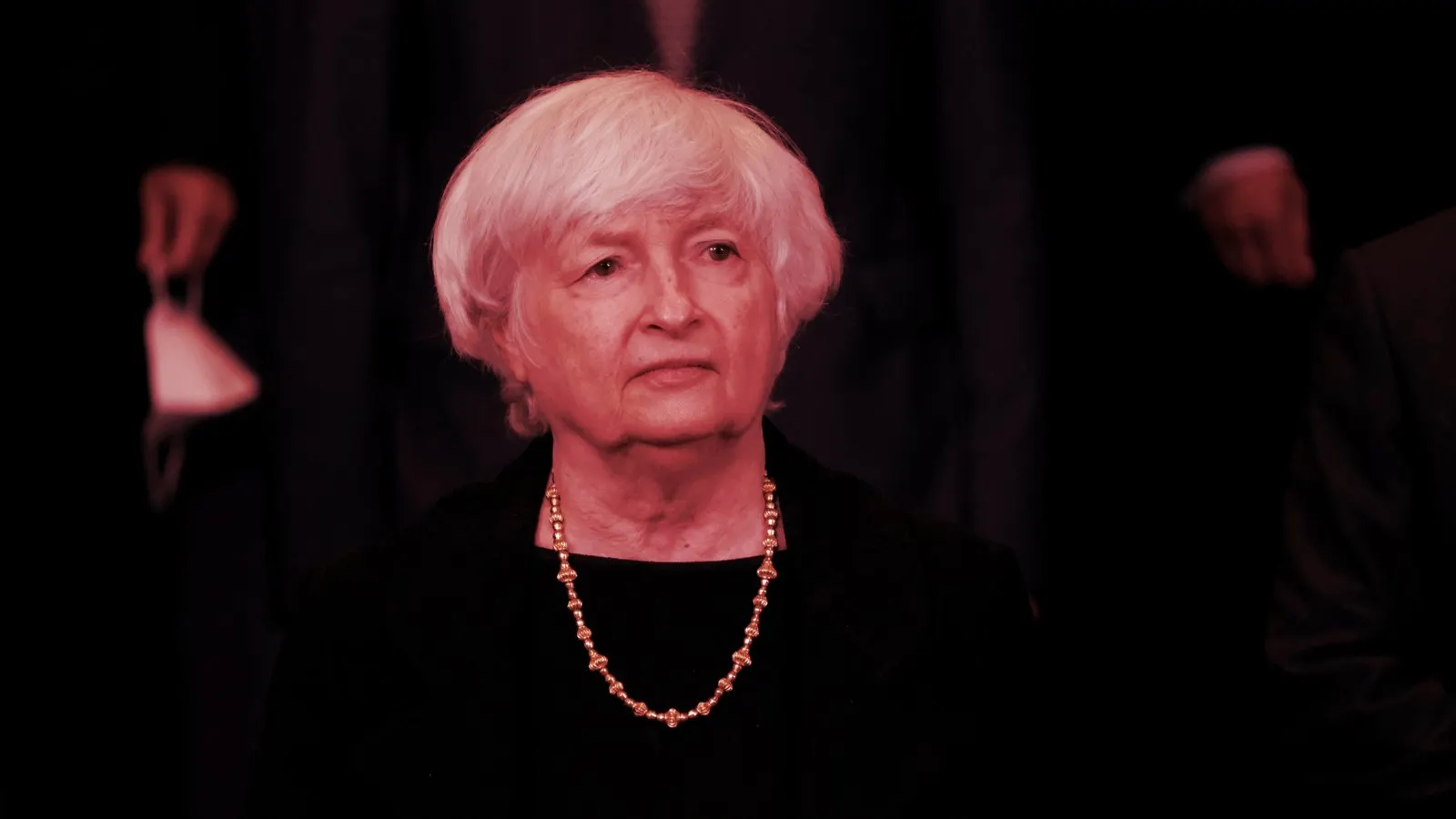Treasury Secretary Janet Yellen said Sunday that the federal government is not considering a bailout for Silicon Valley Bank, but is focused on addressing the needs of the failed bank’s depositors.
During an interview CBS’ “Face the Nation,” Yellen drew a distinction between how the current situation surrounding Silicon Valley Bank would be handled compared to the global financial crisis that led to historic bank bailouts 15 years ago.
“We're not going to do that again,” Yellen said in reference to a potential bailout. “But we are concerned about depositors and are focused on trying to meet their needs.”
After Silicon Valley Bank was closed by California banking regulators on Friday, its operations were overtaken by the Federal Deposit Insurance Corporation (FDIC), which insures member bank deposits of up to $250,000.
Among the 20 largest commercial banks in the U.S., the bank had $209 billion in assets under management and around $175 billion in deposits by the end of last year. As the bank’s reopening on Monday draws closer, tech startups and multiple crypto firms await to see what funds they’ll be able to recover beyond what’s insured.
The collapse of Silicon Valley Bank was one of the largest failures of a financial institution in U.S. history, second only to the failure of Washington Mutual in 2008, which had over $307 billion in assets and $188 billion in deposits.
After Washington Mutual’s banking assets were purchased by JPMorgan Chase, none of its depositors lost any money. But as of Sunday, the only potential buyer to publicly step forward was Elon Musk—who stated he was “open to the idea” on Twitter.
Yellen said she’s working with regulators to come up with a solution for depositors, without being able to provide specifics on how a resolution could soon be reached.
“I've been working all weekend with our banking regulators to design appropriate policies to address this situation,” Yellen said. “I can't really provide further details at this time.”
The collapse of Silicon Valley Bank followed the failure of Silvergate, a crypto-friendly institution that saw its deposits rocked by the collapse of the cryptocurrency exchange FTX. Before Silvergate said it would wind down operations last Wednesday, multiple crypto firms backed away from the ailing bank in rapid succession.
Silicon Valley Bank shuttered due to a bank run that wiped the California-based institution out in a matter of days. The bank had attempted to raise capital to cover $1.8 billion in losses from the sale of U.S. government bonds but failed.
Yellen suggested that the bank’s issues stemmed from “a higher interest rate environment” that hurt the value of its bond holdings as opposed to issues with the tech sector that “aren't at the heart of the problems of this bank.”
Amid fears of contagion that other financial institutions could fall next, Yellen said the U.S. financial system is robust, citing regulation established in the aftermath of 2008 that was designed to improve the resilience of banking institutions.
“It's resilient,” Yellen said. “I do want to do is emphasize that the American banking system is really safe and well-capitalized.”
As Silicon Valley Bank and Silvergate shuttered, investor confidence in other banks fell, including Signature Bank, another leading institution among crypto-native firms. Shares of Signature Bank fell over 22% Friday to $70 per share.
The impact of Silicon Valley Bank’s failure was felt immediately by the digital assets industry as stablecoin USDC lost its peg to the U.S. dollar. Its issuer Circle disclosed the company held $3.3 billion of around $40 billion in USDC reserves with Silicon Valley Bank.
1/ Following the confirmation at the end of today that the wires initiated on Thursday to remove balances were not yet processed, $3.3 billion of the ~$40 billion of USDC reserves remain at SVB.
— Circle (@circle) March 11, 2023
The stablecoin’s value dipped as low as $0.87 before climbing back to $0.95, as of this writing, according to CoinGecko. Addressing concerns, Circle said Saturday it will “stand behind” USDC and use its corporate resources to cover the shortfall.

